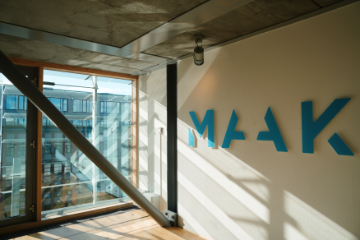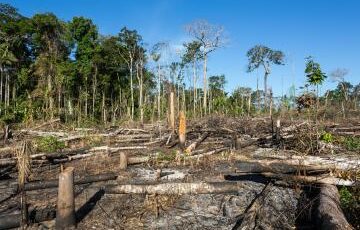
When it comes to food products in the Netherlands, you’ll find a robust safety framework governed by strict regulations. The Dutch system is built on three pillars: Product, Process, and Presentation, ensuring compliance from farm to fork. You’ll need to adhere to EU and Dutch-specific laws, including the General Food Law and Dutch Commodities Act. The Netherlands Food and Consumer Product Safety Authority (NVWA) oversees compliance, conducting inspections, and enforcing regulations. Whether you’re a local producer or an international trader, understanding these regulations is essential to avoid fines, recalls, or legal issues. Discover how these extensive measures protect consumers and maintain the integrity of the Dutch food industry.p
Key Takeaways
- Dutch food safety regulations are based on EU legislation and enforced by the NVWA (Netherlands Food and Consumer Product Safety Authority).
- The Dutch Food Safety Framework comprises three pillars: Product, Process, and Presentation, ensuring comprehensive oversight of food products.
- Food business operators must implement HACCP principles and maintain traceability systems throughout the supply chain.
- Compliance with the General Food Law and Dutch Commodities Act is mandatory for both domestic and imported food products.
- Non-compliance with Dutch food safety regulations can result in fines, product recalls, and potential criminal prosecution.
Dutch Food Safety Framework
The Dutch food safety framework rests on three key pillars: Product, Process, and Presentation. These pillars form the foundation of food regulation in the Netherlands, guaranteeing that food products meet strict safety and quality standards.
The Product pillar focuses on the composition and safety of food items. You’ll need to verify your products comply with regulations on ingredients, additives, and contaminants. This includes adhering to rules for novel foods, food supplements, and special dietary products.
For the Process pillar, you must implement HACCP principles throughout your production, processing, and distribution stages. You’re required to maintain traceability of your products and consider food contact materials. Additionally, you should follow Good Manufacturing Practices and Good Hygiene Practices.
The Presentation pillar governs how you label and market your food products. You’ll need to comply with strict EU regulations on what information must be included on labels and how it’s displayed. Be cautious with claims about your products, as enforcement agencies closely scrutinize these and can impose hefty fines for violations.
Farm-to-Fork Control Measures in the Netherlands
In the Netherlands, farm-to-fork control measures are an integral part of the food safety system. As a food business operator, you’ll need to implement these measures at every stage of your production process. Start by confirming your suppliers meet strict quality and safety standards. You’re responsible for verifying their compliance and maintaining detailed records of all incoming ingredients.
Throughout production, you must adhere to HACCP principles, which involve identifying potential hazards and implementing controls to mitigate risks. This includes maintaining proper hygiene practices, temperature controls, and preventing cross-contamination. You’ll also need to establish a robust traceability system, allowing you to track products one step back and one step forward in the supply chain.
During transportation and distribution, you’re required to maintain appropriate temperature conditions and prevent contamination. At the retail level, you must guarantee proper storage, handling, and display of food products. Regular staff training on food safety practices is essential. Remember, you’re accountable for the safety of your products even after they’ve left your premises, so be prepared to act swiftly in case of any food safety issues.
International Trade Compliance in the Netherlands
International trade compliance in the Netherlands involves traversing a complex web of regulations and standards. As a food business operator engaged in importing or exporting food products, you’ll need to adhere to both EU and Dutch-specific requirements.
You must guarantee your products meet the safety standards set by the General Food Law and the Dutch Commodities Act. This includes proper labeling, adherence to maximum residue limits, and compliance with specific product regulations. You’ll also need to obtain necessary permits and certifications, which may vary depending on the type of food product you’re trading.
When importing, you’re responsible for verifying that the products meet EU and Dutch standards before they enter the market. For exports, you’ll need to comply with the destination country’s requirements as well as Dutch export regulations.
The Dutch Food and Consumer Product Safety Authority (NVWA) oversees compliance at border control points. They conduct inspections and may require additional documentation or testing. Non-compliance can result in rejected shipments, fines, or even criminal prosecution.
To navigate these complexities, it’s advisable to stay informed about changing regulations and consider seeking expert guidance to guarantee smooth international trade operations.
Consumer Protection by Dutch regulations
While international trade compliance sets the stage for food products entering the Dutch market, consumer protection regulations form the backbone of domestic food safety. You’ll find that Dutch food safety laws are deeply rooted in European legislation, with the General Food Safety Regulation and General Product Safety Directive serving as foundational pillars.
However, you’ll need to navigate a complex web of specific implementing regulations and directives that have been integrated into national law. These rules cover a vast array of products, from everyday items like bread and chewing gum to more novel offerings such as edible insects and 3D printing materials. Even packaging materials like straws and bottles fall under this regulatory umbrella.
You must guarantee your products meet strict safety and quality requirements. Non-compliance can lead to serious consequences, including consumer complaints, mandatory government notifications, insurance claims, and potentially costly recalls. These issues can greatly impact your operations, reputation, and brand.
As you adapt to industry changes like Brexit’s effects on trade, shifts in supply and demand, and technological advancements, you’ll need to stay vigilant. Keeping up with these regulations requires both in-depth knowledge and flexible thinking to find the right solutions for your business.
The Dutch food safety lawyers of our secialized law firm
Seeking expert legal guidance for Dutch food safety regulations? Our specialized law firm’s food safety lawyers are equipped to handle the complex challenges you face in the Dutch food industry. We focus on compliance issues related to importing, processing, and marketing food and animal feed. Our expertise covers pesticide residues, veterinary import controls, microbiology, contaminants, and other safety risks.
We’re experienced in assisting companies with recalls and product liability claims. Our team is well-versed in NVWA supervision and enforcement, as well as labeling, advertising, and trademark issues. We combine these specialties with international trade, litigation, banking, insurance, corporate, labor, administrative, criminal, IP, IT, and privacy law services.
This thorough approach allows us to advise food and feed companies throughout the entire chain. We’ll guide you through technical food regulations, environmental concerns, residual flows, nitrogen problems, storage, transport, and permit procedures. You’ll benefit from our all-round knowledge as we tackle legal issues from every angle. Whether you’re dealing with production, logistics, trade, or retail, our multidisciplinary team is ready to support your business in steering through Dutch food safety regulations.
Conclusion
You’re facing a complex regulatory landscape in the Dutch food market. You’ll need to navigate EU and Dutch laws, focusing on product, process, and presentation. Don’t forget HACCP principles and strict labeling requirements. The NVWA’s enforcement is rigorous, so compliance is essential. By understanding these regulations, you’ll protect consumer safety and avoid legal issues. It’s challenging, but with proper preparation, you can successfully enter the Dutch food market.
Dutch Food safety law firm
For any legal inquiries or support in the Netherlands, please feel free to contact our adept team at MAAK Advocaten.






